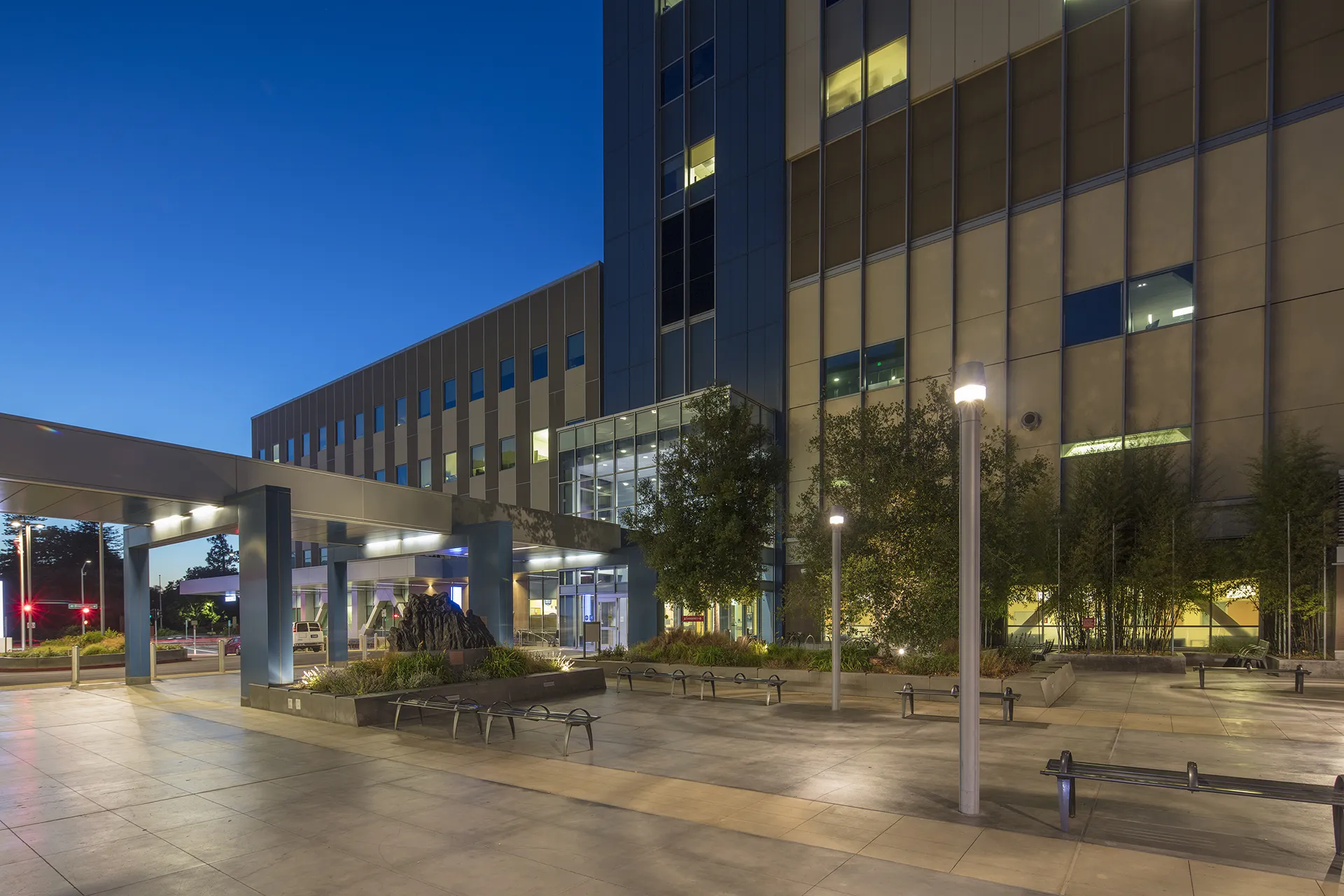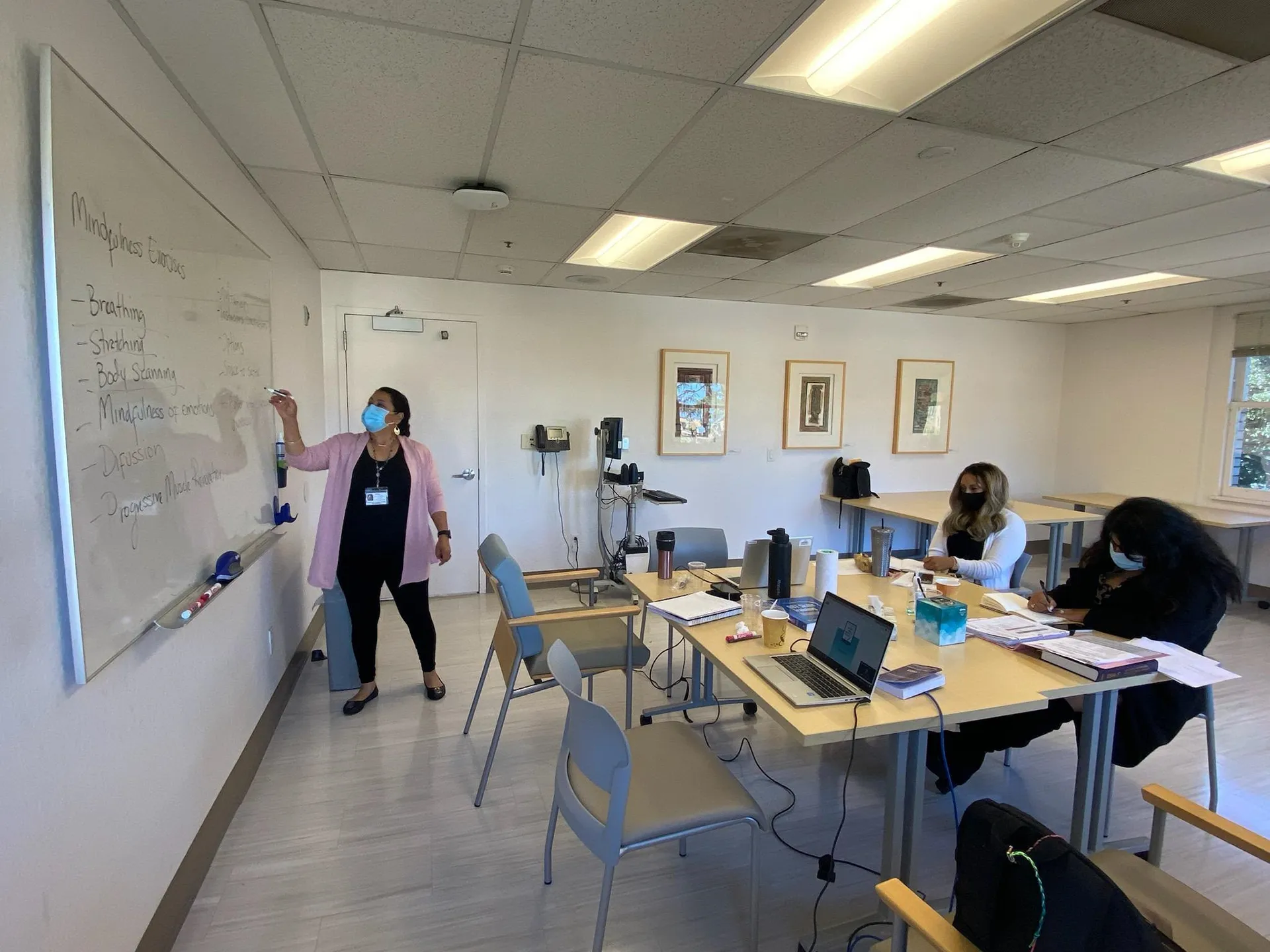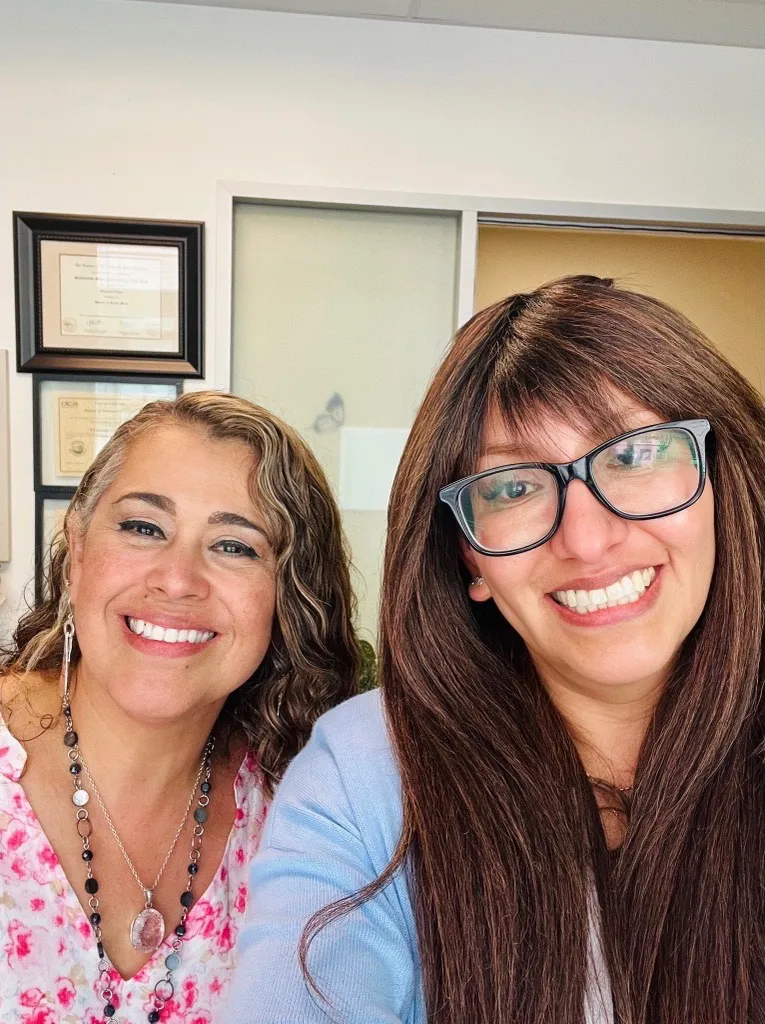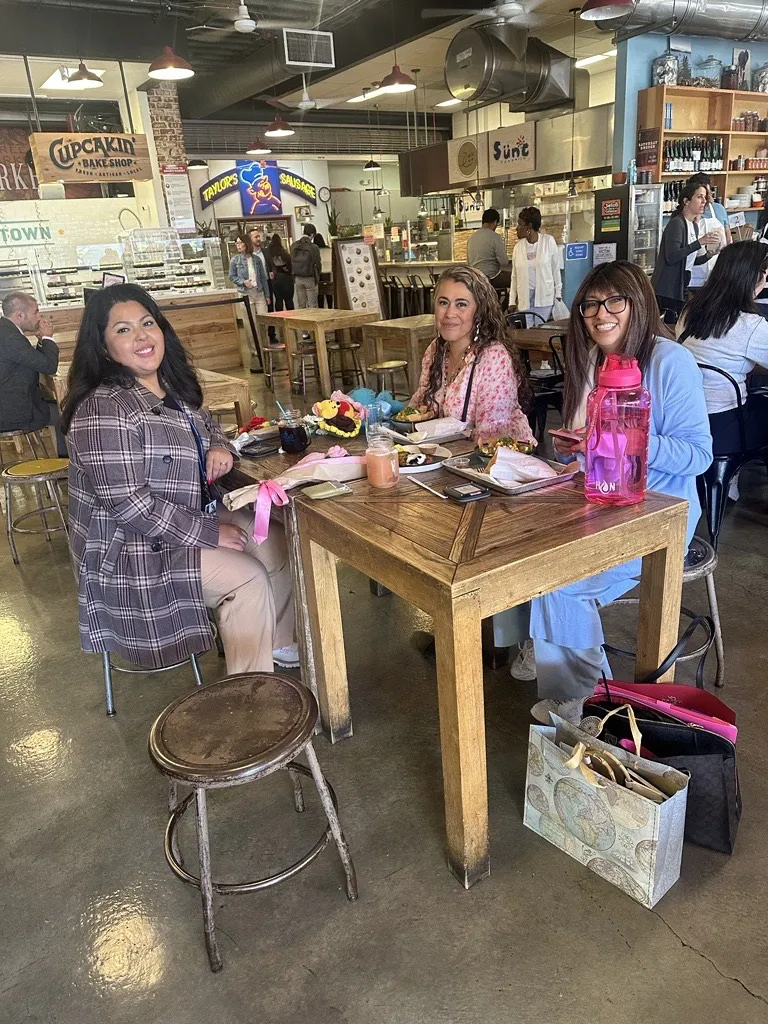Associate Post Master’s Mental Health Fellowship – Oakland
East Bay Consortium (Oakland and Richmond)

Oakland is a bustling, diverse metropolitan city 10 miles from San Francisco, and adjacent to Berkeley. It offers the best of both worlds – the cultural opportunities of an urban environment and uniquely beautiful natural parks and open spaces. The climate is temperate with mild winters and abundant sunshine. The East Bay Regional Parks around Oakland encompass 59 parks with more than 91,000 acres for hiking, running, swimming, and other outdoor activities. Nearby Jack London Square offers fine dining and shopping and Piedmont Avenue, which is within walking distance of the medical center, also boasts numerous restaurants and stores. The city hosts a Farmer’s Market on 9th Street every Friday.
The Kaiser Permanente Oakland Medical Center is the flagship facility of the entire Northern California Kaiser Permanente system. The Permanente Foundation opened its first hospital in Oakland in 1942. A new hospital of 346 beds was constructed in 2009, with three nearby office buildings providing outpatient services. All facilities are located in the central portion of the city and accessible by public transportation. Kaiser Oakland provides primary care to 32% of the surrounding population and tertiary care to three million health plan members in Northern California. It is a regional referral center for specialty services, such as genetics, spine surgery, pediatric neurosurgery, and transgender care.
The Psychiatry department serves a large urban and suburban community, extending from Richmond, Pinole, and Albany to the city of Alameda and San Leandro, with Oakland and Berkeley in between. Our patient population reflects the unique ethnic and cultural diversity of the region with members identifying as African American, Asian, Caucasian, Latino/a and other. Common languages spoken include Spanish, Vietnamese, Cantonese, and Mandarin. Our membership also includes Medicare/Medi-Cal enrollees, who comprise 11% of the population cared for in our service area. Oakland and its surrounding cities are home to one of the largest sexual and gender diverse populations in the US. Kaiser Oakland Psychiatry has been a mental health training site since the 1980s.
Program Curriculum
Equity, Inclusion & Diversity
We are committed to nurturing and integrating diversity training into every aspect of our Associate Post Masters Mental Health Fellowship Program by:
- Providing fellows with opportunities to work with patients who represent a wide range of diversity, including ethnicity, gender, sexual orientation, age, religion, socioeconomic status and abilities.
- Placing a high value on encouraging and supporting fellows’ willingness and ability to engage in self-reflection and learning about their assumptions, privileges and habits that could have a negative impact on clinical interactions with patients who are different in significant ways from them.
- Maintaining a consistent focus in clinical supervision on expanding fellows’ multicultural awareness and competence in the provision of psychotherapeutic services and by providing guidance and resources on topics related to diversity.
- Providing formal didactic training on a range of diversity topics (e.g., discovering and mitigating unconscious bias, respecting every voice, and cultivating a sense of inclusion and belonging in the workplace).
- Encouraging fellows to participate in the Regional Mental Health Training Program EID Forums, which provide advanced training on topics related to cultural humility and competence and a safe space in which to reflect upon and discuss their varied experiences.
Didactic Training
Associate Post Masters Mental Health Fellows receive weekly, 2-hour, Didactic Trainings, provided by different clinicians from different clinics and departments in the region. These specific didactics will focus on diverse topics and therapeutic approaches, to enhance the knowledge and the clinical repertoire of our fellows.
Additionally, qualified fellows will receive 1 hour of Spanish Didactics per week on different therapeutic approaches and frameworks with the purpose of enhancing the clinical vocabulary and knowledge of cultural nuances treatment adaptations, and special cultural considerations.
Our Regional Mental Health Training Program also sponsors professional training courses for continuing professional development. These courses and presentations are offered at select times during the year for all KP mental health trainees and staff at Kaiser Northern California Medical Centers. We bring in national experts and keynote speakers on a variety of cutting-edge topics in mental health treatment and research. Fellows are required to attend these monthly regional trainings in addition to the weekly didactic seminars. Training course dates and a list of speakers and topics can be found on the Regional Mental Health Training Programs website. In addition, many of these lectures are recorded and available under the continuing education lecture library.
Seminars and Meetings
Associate Post Masters Mental Health Fellows will be participating in all or part of the following meetings (Depending on number of hours and days PMF is working per week):
- Weekly Staff Meetings
- La Clinica Meeting (Meeting where Spanish Speaking Clinicians and Psychiatrists provide support to each other and present cases)
- Bilingual Case Presentation (Meeting where clinicians present cases to receive support).
- Case Presentation (English)
Fellows also have the opportunity to participate in weekly Feedback Informed Care (FIC) case consultations.
Supervision
All fellows are provided with two hours of weekly individual supervision with a primary and secondary supervisor, and two additional hours of weekly group supervision. Additional individual supervision is offered in Spanish, for 1 hour, on a weeklybasis.
The primary and secondary supervisor is responsible for supervising the direct delivery of clinical services. This supervisor takes the lead role in monitoring the fellow’s progress, providing feedback on strengths and areas in need of further development, ensuring effective and safe patient care, adequate documentation, and evaluating training schedules.
Group supervision includes opportunities for fellows to present and discuss cases. Fellows learn how to address treatment through a cultural framework including ethnicity, language, age, gender and sexual identity. Group supervision allows for vicarious learning, practice with professional public clinical presentations, and learning how to give and receive feedback.
Community Partnership Program
Reflecting Kaiser Permanente’s core commitment to mental health and wellness in our communities, each trainee will spend at least 32 hours during their training year on a Community Partnership Project that focuses on improving mental health in the local community beyond our Kaiser Permanente members.
The goal of these projects is to provide outreach to underserved populations in the community to promote healthy behaviors. Training Objectives include developing acquaintance with the tenets of Community Psychology, as well as gaining experience in community outreach, and the development of partnerships within internal and external systems.
Tracks and Rotations
Intensive Services: Clinical Case Management
Intensive services at Kaiser Oakland includes two primary programs: Clinical Case Management (CCM) and the Intensive Outpatient Program (IOP). Clinical Case Management provides mental health treatment and case management services to people experiencing severe and chronic mental health conditions. The Intensive Outpatient Program is a short-term stabilization program for people experiencing a mental health crisis or stepping down from inpatient hospitalization.
The post master’s fellow position will primarily be part of the Clinical Case Management Program and will include one day a week in the Intensive Outpatient Program.
As part of the Clinical Case Management team, the post master’s fellow will provide individual clinical case management and co-facilitate groups, in addition to participating in supervision, trainings, and team meetings.
The post master’s fellow will be part of Wellness Club, a Clinical Case Management group program for people with serious mental health challenges including experiences of psychosis, bipolar, severe depression, and complex trauma who are either stepping down from inpatient hospitalization, experiencing a mental health crisis, or having a first episode of psychosis. The group includes learning and practicing skills, building social support and connection, engaging in creative expression through art therapy, clinical case management and medication management to support mental health stabilization and recovery.
Clinical Case Managers facilitate additional skills and support groups, including CBT for Psychosis, Affect Regulation for Psychosis, Compassion and Action, Life Skills, Wellness Graduates among others. Clinical Case Management groups utilize a variety of evidence-based practices including Wellness Recovery Action Planning, Cognitive Behavioral Therapy, Dialectical Behavioral Therapy, and Acceptance and Commitment Therapy.
The post-master fellow will carry a case load of individual patients. Individual Clinical Case Management work will include:
• Assessment and Diagnosis
• Providing evidence-based treatment
• Connecting with needed resources within Kaiser and in the community.
• Coordinating care and services.
• Family education and support.
The Clinical Case Management team consists of a core multidisciplinary group of providers with years of experience and expertise in training, developing innovative programs, and providing clinical care to support people in the process of recovery.
Behavioral Medicine Service
The fellow in this position will be placed in the behavioral medicine service, located within Kaiser’s primary care facilities. Prior behavioral medicine experience is preferred, but not required. The position is primarily spent in face-to-face patient care. Appointments are 30 minutes every 2-3 weeks, offering 6 sessions at a time (with flexibility based on need of the patient), in line with the behavioral consultation model of mental health.
The fellow will gain breath of experience in assessing and treating many different mild to moderate psychological presentations, including but not limited to psychological stress from a medical condition, chronic pain, insomnia, anxiety disorders, specific phobia, depression, and grief, among other presentations. The intern’s case load can be adjusted based on their clinical interests. There is opportunity to run group therapy including ACT for chronic illnesses and CBT for Health Anxiety. Supervisor modalities are primarily 3rd wave therapies, such as CBT, mindfulness-based CBT, behavioral therapy, and ACT. Intern will learn rapid assessment for a large breadth of lower acuity psychological disorders while providing behavioral and cognitive interventions. Emphasis is placed on interdisciplinary care and consultation with the behavioral medicine team.
Gender Clinic: Multispecialty Transition Treatment Services (MST)
The post-master’s fellow (PMF) in this track will complete their training year in the Multi-Specialty Transitions (MST) Department at Kaiser Permanente Oakland Medical Center, which is a regional hub for gender-affirming medical care in Northern California. The clinic’s mental health model is rooted in self-determination and informed consent, and providers on this team support patients holistically as they pursue gender-affirming medical care. The mental health service in the clinic also closely collaborates with medical providers to offer a range of services that support patients’ emotional and psychological well-being. These services are affirmative, sex-positive, respectful, and culturally aware.
The clinic team consists of mental health providers as well as clinicians from surgery, internal medicine, gynecology, social work, and nursing, who work together to provide comprehensive healthcare for Kaiser Permanente members needing gender-affirming healthcare services.
A mental health clinician in this role has the opportunity to provide the following services:
• Conduct informing sessions for gender-affirming medical care, including hormones and surgeries
• Provide ongoing support for patients as they prepare for and recover from gender-affirming surgeries
• Facilitate support groups
• Short-term psychotherapy
• Present mental health and wellness materials at surgical education classes
• Provide support for youth and families navigating decisions related to medical and social transition
• Coordinate care across an interdisciplinary team of providers
• Develop patient education material and resources
An ideal candidate for this position has a working knowledge of transgender and non-binary identities, is rooted in social justice frameworks, and understands the historical gatekeeping role that mental health providers have played in trans health and are willing to interrogate their own subjectivities in clinical encounters with patients.
Child and Family Services: General Child Services
The Department of Child and Adolescent Psychiatry at Kaiser Permanente Oakland Medical Center specializes in the treatment of a comprehensive range of psychiatric conditions. Our Front-Loaded Treatment Track is instrumental in offering immediate access to evidence-based interventions for young individuals and their families. After a thorough initial assessment, this track provides patients, identified with mild to moderate risk, a series of 8 bi-weekly therapy sessions. These sessions prioritize symptom alleviation, improved functioning, psychoeducation, and guiding families towards attainable treatment objectives. Adopting a time-limited care approach equips our trainees with the opportunity to refine their diagnostic skills, cultivate effective treatment planning, and conclude treatments when clinically indicated.
Trainees on this track will work closely with highly experienced clinical supervisors to deliver ethical, evidence-based treatment in a timely manner. The program also offers exposure to a variety of therapeutic modalities including play therapy, dyadic therapy involving parents and children, individual therapy tailored for teenagers, family therapy, parent counseling, and multiple group therapies. This training program will provide individual supervision, group supervision, and regular access to Ground Rounds.
Trainees will work within a multi-disciplinary team and be able to regularly consult with Pediatricians, Psychiatrists, and Acute Crisis Teams about their patient care. Our entire department is dedicated to support, train, and mentor our program participants toward their professional goals.
Schedule
Mondays through Fridays from 8 am to 5 pm (this schedule might vary according to number of hours and days the trainee will be in the office.
Additionally, schedule might flex to accommodate trainees been able to facilitate groups in the evening.
The schedule will be a combination of work in person at the local clinic and virtual work from home. Trainees will be provided with the appropriate equipment for work at home.
Direct Patient Care: 20 hours
Non-Patient Care: 12 hours
Individual Supervision: 2 hours
Group Supervision: 2 hours
Didactic Training: 2 hours
Feedback Informed Care and case consultation: 2 hours
Community Benefit Project: 32 hours over the course of the year
Program Graduates
2022-2023 Cohort
| Graduate | University/Institute | Track/Specialty Rotation | Current Position, Specialty & Location |
|---|---|---|---|
| Sandra Martinez Silva | PPSC in School Social Work, CSU-Sacramento | Bilingual Adult Outpatient | Associate Masters Mental Health Professional, Adult Outpatient Psychiatry, Kaiser Permanente, Lathrop |
| Rebeca Zaragoza | MSW, University of Southern California | Bilingual Adult Outpatient | Associate Masters Mental Health Professional, Connect to Care, Kaiser Permanente Livermore |
2021-2022 Cohort
| Graduate | University/Institute | Track/Specialty Rotation | Current Position, Specialty & Location |
|---|---|---|---|
| Francisca R. Elias | Bilingual Adult Outpatient | Psychiatric Mental Health Professional, Regional Clinic Kaiser Permanente in Lancaster |
2020-2021 Cohort
| Graduate | University/Institute | Track/Specialty Rotation | Current Position, Specialty & Location |
|---|---|---|---|
| Maritza González Téllez | Columbia University | Bilingual Adult Outpatient | Gender Specialist, Multispecialty Transitions Clinic, Oakland |
| Jorge Alvarado Grajeda | Bilingual Adult Outpatient | Psychiatric Mental Health Professional, San Francisco Kaiser Permanente |
Current Opportunities
| Position | Track(s) |
|---|---|
| Child (2 Positions) | Child |
| Dialectal Behavior Therapy (DBT) | DBT |



